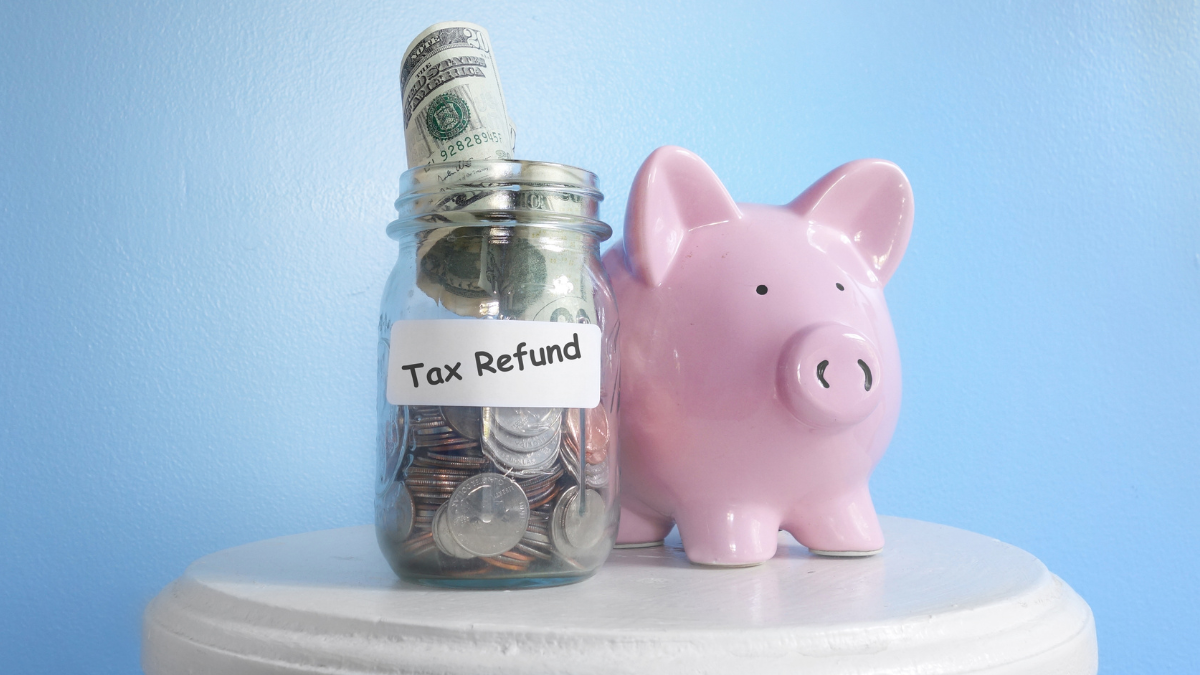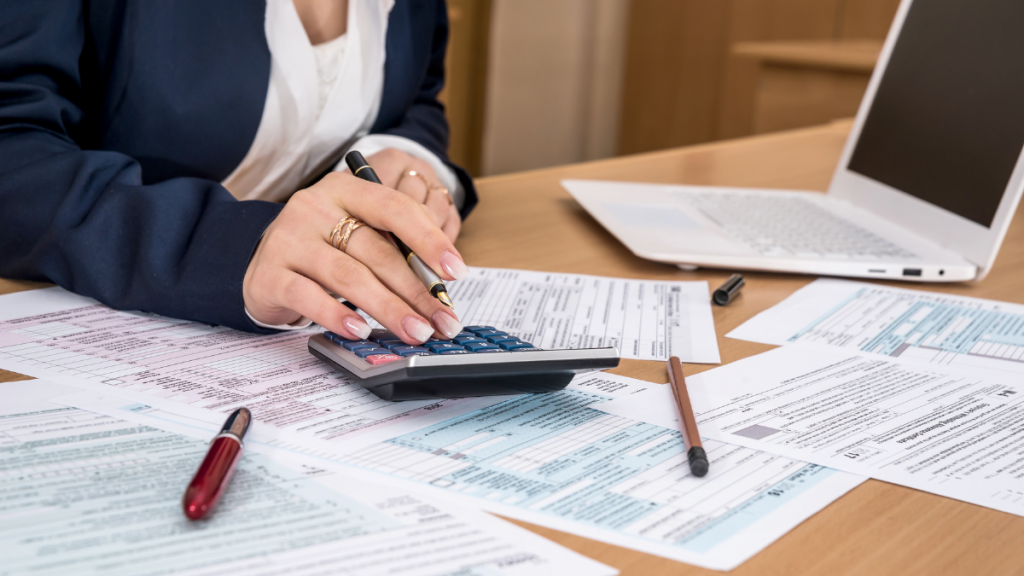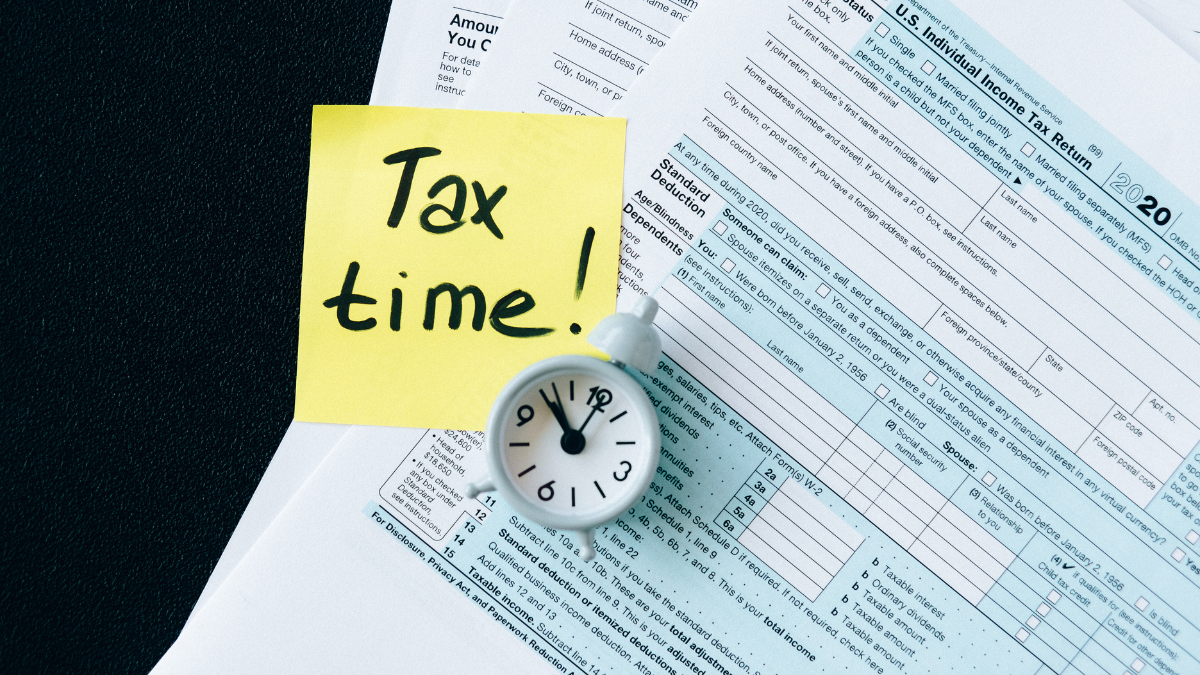Tips
What happens if you don’t pay your taxes?
Learn about the consequences of not paying your taxes, including steep fines and penalties, and how to get help.
Advertisement
How to avoid getting into trouble with the IRS

Taxes. Just a mere word can make people shudder and start to break out into a sweat. Wondering what happens if they don’t pay their taxes on time.
But no matter how stressful it can be to think about, not paying your taxes is never a good idea. In fact, it could have serious financial and legal consequences.
In this blog post, we’ll look in-depth at what happens when you don’t pay your taxes. Also, the steps you can take to avoid getting into deep trouble with the IRS or other government bodies that collect taxes.

How to track your IRS tax refund
Worried about your refund? Don't be. Stay up-to-date on your return status with these easy steps.
Here’s what happens when you don’t pay your taxes
Did you know skipping out on taxes could lead to serious legal issues? That’s right – failing to pay your tax obligations can have serious legal repercussions.
All citizens must understand the consequences of not paying taxes. As there are numerous fines and potentially even jail time for willful neglect or fraud.
Whether you’re a small business owner, freelancer, or wage earner, every taxpayer is responsible for filing and paying their taxes accurately and on time each year. This blog post will examine what happens if you don’t pay. So keep reading to learn more!
You will be redirected to another website
By submitting this form, I agree that I am 18+ years old and I agree to the Privacy Policy and Terms and Conditions. I also provide my signature giving express consent to receive marketing communications via automated emails, SMS or MMS text messages and other forms of communication regarding financial products such as credit card and loans. Message frequency varies and represents our good faith effort to reach you regarding your inquiry. Message and data rates may apply. Text HELP for help or text STOP to cancel. I understand that my consent to receive communications is not a condition of purchase and I may revoke my consent at any time.
What happens if you can’t pay your taxes?

If you can’t pay your taxes on time, it’s important to know that the IRS can hit you with some hefty penalties and interest charges.
Depending on the situation, you could face a maximum penalty of 47.5% of your dues. Including late filing and payment fees.
As for how much extra you have to pay for not honoring tax due dates. It varies between individuals, with the IRS considering factors such as overdue duration.
To recoup unpaid taxes, the IRS may also try to collect via tax liens, levies, private debt collectors, and passport denial and suspension.
Don’t let tax issues get out of hand – keep on top of due payments to avoid unnecessary complications!
What happens if you file your taxes late?
If you don’t file your taxes on time, it can have serious consequences. You must pay late fees and hefty penalties for not submitting when due.
And even if the IRS owes you a refund, that money will lapse after three years if you don’t file on time.
The best thing you can do is submit your tax return even if you can’t afford to cover the full amount – the sooner you do it, the better!
The IRS encourages everyone to “submit a tax return and pay any amount owed as soon as possible” – it could save you from bigger problems.
What to do if you can’t pay your taxes

It happens to the best of us. But not all hope is lost. According to the IRS, if you’re in a pinch, you can reduce penalty and interest amounts by immediately paying as much as possible.
Check to make sure it works for your budget, but it might be worth considering relying on a loan with fees and interest rates lower than those from the IRS, such as from a credit card, bank loan, or home equity loan.
If that’s out of reach for you, there are other options like payment extensions, installment plans, or even settling your debt through an offer in compromise.
1. Payment extensions
The IRS may offer payment extensions, so don’t hesitate to apply. Form 4868 grants an extension of up to six months if the due date is too soon.
If it happens that you’re facing an undue hardship to pay your taxes on time, there’s also Form 1127. Which can provide payment relief for longer.
In extreme cases, like disaster victims or those serving overseas, the IRS may even delay the collection of taxes due so that basic living expenses can still be paid.
So explore what options suit your situation, and with some paperwork, you can rest assured that the IRS won’t come after you if there’s a real need for an extension.
2. Payment plans
If you need a bit of extra time to pay your taxes, an IRS payment plan might provide some relief. This happens to us all occasionally, and the IRS gives you options regarding payment plans.
Short-term plans can cover tax bills up to $100,000 and give you 180 days for repayment.
Long-term payment plans are for up to $50,000 and involve monthly payments with a one-time setup fee (which could be reduced or waived for low-income taxpayers).
To qualify, simply apply online at the IRS website; they’ll review your info and let you know if you’re eligible.
3. Offers in compromise
If you happen to find yourself in a situation where paying your full tax bill simply isn’t an option, the IRS offers the offer in compromise (OIC) as one way to settle your tax debt for less than the amount owed.
OIC is based on factors such as your ability to pay, income, expenses, and assets. Check out their OIC Pre-Qualifier tool to see if you meet the eligibility requirements.
It’s worth considering – why pay more when you can pay less?
Taking proactive steps could make all the difference!
Tax season 2023: everything you need to know
It’s time to start thinking about tax season 2023! Whether it’s your first year filing taxes or you’re an experienced filer looking for new tips and tricks to save money, understanding the ins and outs of the US tax system can be taxing.
Thankfully, we’ve put all the information you need in one place. In the following blog post, we’ll provide a comprehensive guide on taxes.
From who is required to file to what forms are needed and how deductions work, you can rest assured that your 2023 taxes will be in order. Ready? Let’s get started!

Tax season 2023: everything you need to know
Filing your taxes can be confusing! But we're here to help. This blog post will overview everything related to tax season 2023.
Trending Topics

The Rarest Video Games of All-Time
If you like video games, you've probably already heard about some of the rarest video games on the market. Keep reading to learn more!
Keep Reading
A clean space can do wonders for your mental health
Did you know that your environment has a direct impact on your wellbeing? Here’s how having a clean space can improve your mental health.
Keep Reading
Top Best Grocery Delivery Apps: Shop & Save Time!
Find the best grocery delivery apps & get fresh foods fast! Save time, compare services, and enjoy the ease of home-delivered groceries.
Keep ReadingYou may also like

Learn how to effectively quit smoking and leave this habit for good
Want to quit smoking? Check out these tips to help you on your way! From setting a date, to dealing with cravings, we've got you covered.
Keep Reading
Rise Credit Review: Smart Financial Choice!
Get access to flexible payment options and review tools to improve your credit with Rise Credit. Enjoy a 5-day risk-free guarantee!
Keep Reading
PayPal has been losing users on the account of a new policy
PayPal suffered a lot of criticism this week after updating their policy with a $2,500 fine for expressing misinformation. Read on for more.
Keep Reading